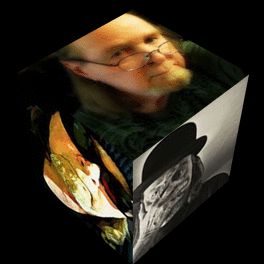Post by rrw on Aug 6, 2008 13:30:05 GMT -5
Here's what I've been working on all summer instead of writing lots of poetry! I hope this Theatre Minor in Acting/Performance will lead some where. Check it out:
The Theatre Minor in Acting/Performance was developed to reestablish the presence of an independent theatre department on the NMHU main campus. The Theatre Minor in Acting/Performance is designed to help develop for the student actor a practical, theoretical, philosophical and analytical approach to the craft of acting and performing on stage and in film. Based primarily on Constantin Stanislavski’s major works, An Actor Prepares, Building a Character and Creating a Role, The minor will offer classes in voice and diction, stage movement, actor’s studio, theatre history, acting theory and script analysis. The primary goal of the minor is to develop a strong foundation for the student interested in pursuing a professional career and/or advanced professional training in the craft and art of acting.
THEA 271 Acting I: The Actor Prepares
An introduction to the Stanislavski approach to acting and the development of the actor’s resources. Included in the course are exercises in sensory awakening, imagination, focus and concentration, observation, improvisation and storytelling. The student actor is also introduced to a basic philosophical/practical approach to the art of acting which includes development of analytical skills as well as an understanding of vocal and movement conventions for the stage.
THEA 371 Acting II: Creating a Character
A continuation of Acting I, Creating a Character explores individual characterization using analytical techniques and observation and imagination resources to create character. Emphasis is placed on physical, vocal and psychological characterization developed through analysis, internal/external technique and costume/prop use.
THEA 372 Acting III: Scene Work
A continuation of the study of the Stanislavski System with focus on rehearsal process, scene work with a partner, listening, moment to moment playing, creating a play’s environment, creating individual characterization and the continued development of an individual philosophical and analytical approach to the craft and art of acting.
THEA 361 Stage Movement for the Actor
Stage Movement for the Actor is designed to develop and expand the actor’s knowledge of movement for the stage through practical, physical exercises. Included in the course are exercises for: increased body awareness and alignment, physical relaxation and flexibility, body communication, tempo/rhythm changes and scoring a character’s movement choices. The class also includes an exploration of movement theory, use of props and development of a system for creating physical characterization for both theatrical realism and non-realism.
THEA 362 Voice and Diction for the Stage
Voice and Diction for the Stage is a course dedicated to the development of the actor’s voice for performance. Areas of concentration will be on voice theory, breathing techniques, developing range, power and flexibility in the voice. Through practical exercises, the actor will learn voice control and will explore how to use language, develop subtext, activate the voice and use sound to express character.
THEA 381 Theatre History for the Actor
An overview of the history of Western theatre as an individual art form from the Greeks to the present time with emphasis on the actor’s place in theatre history, major acting styles in each period studied, along with the study of the major acting styles and theorists of each period. The student will also study selected plays related to specific acting styles and/or theorists
THEA 382 Play Analysis for the Actor
Based primarily on the theory of play analysis developed by Constantin Stanislavski and Francis Hodge’s book, Play Directing, the student actor is introduced to the tools of theatrical analysis: given circumstances, units of action, objective, obstacles, tactics, through-line of action, subtext, “The Magic if…,” researching the role outside the world of the play and imaging. The student will be tested by applying the tools of theatrical analysis to the study of selected play scripts.
Theatre Minor in Acting/Performance Objective:
The Theatre Minor in Acting/Performance was developed to reestablish the presence of an independent theatre department on the NMHU main campus. The Theatre Minor in Acting/Performance is designed to help develop for the student actor a practical, theoretical, philosophical and analytical approach to the craft of acting and performing on stage and in film. Based primarily on Constantin Stanislavski’s major works, An Actor Prepares, Building a Character and Creating a Role, The minor will offer classes in voice and diction, stage movement, actor’s studio, theatre history, acting theory and script analysis. The primary goal of the minor is to develop a strong foundation for the student interested in pursuing a professional career and/or advanced professional training in the craft and art of acting.
Class: Theatre Minor in Acting/Performance (21 hours)
THEA 271 Acting I: The Actor Prepares
An introduction to the Stanislavski approach to acting and the development of the actor’s resources. Included in the course are exercises in sensory awakening, imagination, focus and concentration, observation, improvisation and storytelling. The student actor is also introduced to a basic philosophical/practical approach to the art of acting which includes development of analytical skills as well as an understanding of vocal and movement conventions for the stage.
THEA 371 Acting II: Creating a Character
A continuation of Acting I, Creating a Character explores individual characterization using analytical techniques and observation and imagination resources to create character. Emphasis is placed on physical, vocal and psychological characterization developed through analysis, internal/external technique and costume/prop use.
THEA 372 Acting III: Scene Work
A continuation of the study of the Stanislavski System with focus on rehearsal process, scene work with a partner, listening, moment to moment playing, creating a play’s environment, creating individual characterization and the continued development of an individual philosophical and analytical approach to the craft and art of acting.
THEA 361 Stage Movement for the Actor
Stage Movement for the Actor is designed to develop and expand the actor’s knowledge of movement for the stage through practical, physical exercises. Included in the course are exercises for: increased body awareness and alignment, physical relaxation and flexibility, body communication, tempo/rhythm changes and scoring a character’s movement choices. The class also includes an exploration of movement theory, use of props and development of a system for creating physical characterization for both theatrical realism and non-realism.
THEA 362 Voice and Diction for the Stage
Voice and Diction for the Stage is a course dedicated to the development of the actor’s voice for performance. Areas of concentration will be on voice theory, breathing techniques, developing range, power and flexibility in the voice. Through practical exercises, the actor will learn voice control and will explore how to use language, develop subtext, activate the voice and use sound to express character.
THEA 381 Theatre History for the Actor
An overview of the history of Western theatre as an individual art form from the Greeks to the present time with emphasis on the actor’s place in theatre history, major acting styles in each period studied, along with the study of the major acting styles and theorists of each period. The student will also study selected plays related to specific acting styles and/or theorists
THEA 382 Play Analysis for the Actor
Based primarily on the theory of play analysis developed by Constantin Stanislavski and Francis Hodge’s book, Play Directing, the student actor is introduced to the tools of theatrical analysis: given circumstances, units of action, objective, obstacles, tactics, through-line of action, subtext, “The Magic if…,” researching the role outside the world of the play and imaging. The student will be tested by applying the tools of theatrical analysis to the study of selected play scripts.




 and
and  all
all time for me
time for me 
 echoes, hope you all are doing well
echoes, hope you all are doing well 

